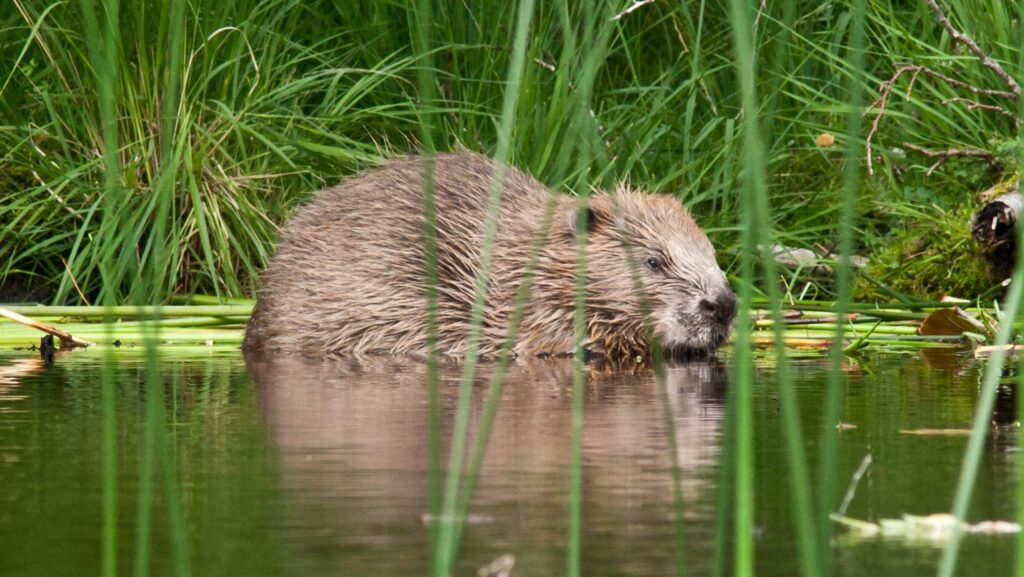Wildlife group urges widespread introduction of beavers
 © Steve Gardner
© Steve Gardner Releasing beavers into the wild in England and Wales, rather than confining them to enclosures, would have huge environmental benefits and should be pursued vigorously by the government, according to The Wildlife Trusts.
In a report published on Thursday (29 August), A Vision for the Return of Beavers, the environmental group argues that beavers are a “powerful nature restoration tool” that could help the government meet its nature-restoration targets.
See also: Guidance on wild release of beavers in England sparks debate
Rob Stoneman, director of landscape recovery at The Wildlife Trusts, said: “Numerous scientific studies have shown that beavers improve water quality, stabilise water flows during times of drought and flood, and give a huge boost to habitats and to other wildlife.
“Given the climate and nature crises, we need beavers back in the wild to give us a hand to resolve these challenges.”
Frustration
The group expresses its frustration that, three years since Defra first consulted on general beaver releases in England, “the UK government has repeatedly failed to put in place the steps needed for their return”.
The Welsh government is criticised for similar lack of progress.
As such, the group is calling on the UK and Welsh governments to publish an ambitious beaver reintroduction strategy.
This should include payments to farmers and land managers in both countries to make more space for water on their land, it says, and the establishment of beaver management groups.
Circumspect
But farmer groups including the NFU remain circumspect.
NFU Environment Forum chairman Richard Bramley said: “Some landowners and managers may be interested in beaver reintroduction opportunities, and we recognise that in the right location beavers can provide some benefits.
“However, many farmers are rightly concerned about the impacts beavers could have on their land, business and food production.”
The NFU is mindful of developments in Scotland, where the first wild beavers were released under licence in 2009.
Current estimates put the population at more than 2,000 animals, thanks in part to illegal releases and escapes in Tayside.
Problems
Scottish farmers have experienced numerous problems as a result, with river banks being undermined and prime arable land being flooded due to the activity of beavers.
The Scottish Wildlife Trust, along with the Royal Zoological Society of Scotland, NFU Scotland and Scottish Land and Estates, have developed a joint agreement on how to manage beavers, with lethal control agreed as a last resort.
Between January last year and April this year, 85 beavers were trapped under licence in order to mitigate negative impacts on agriculture, of which 77 were moved to new homes and the remaining eight culled.
